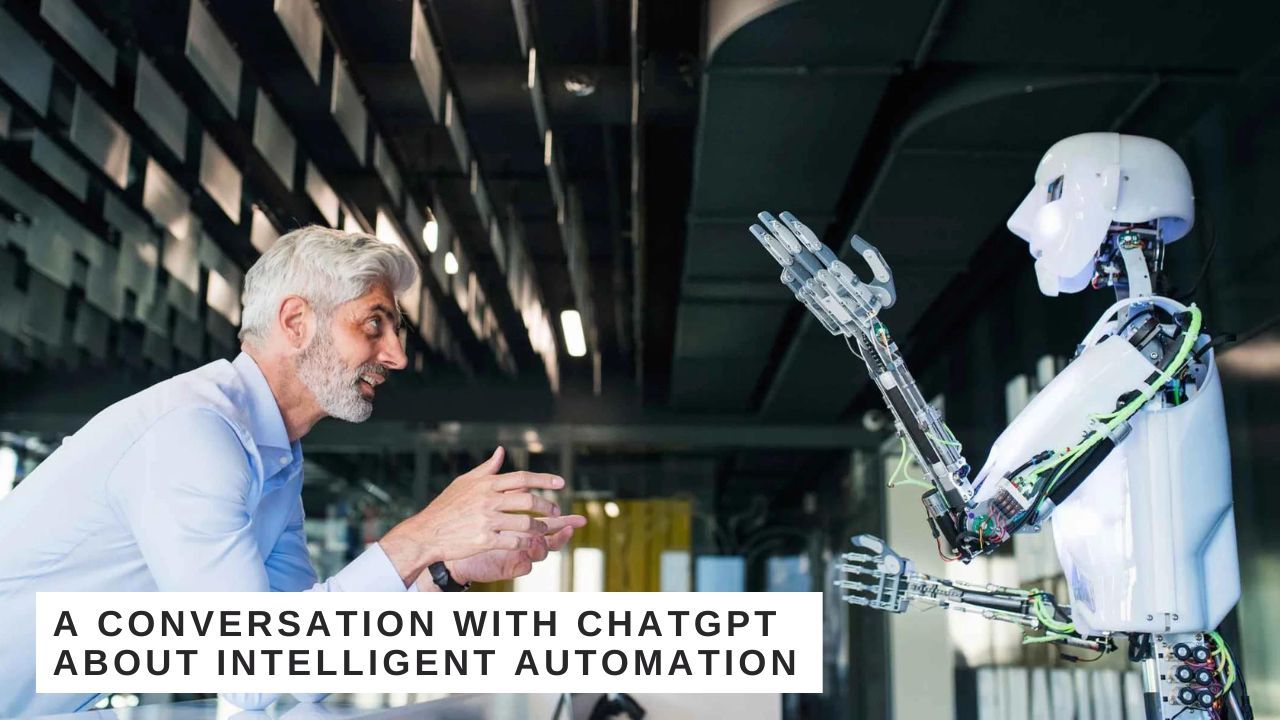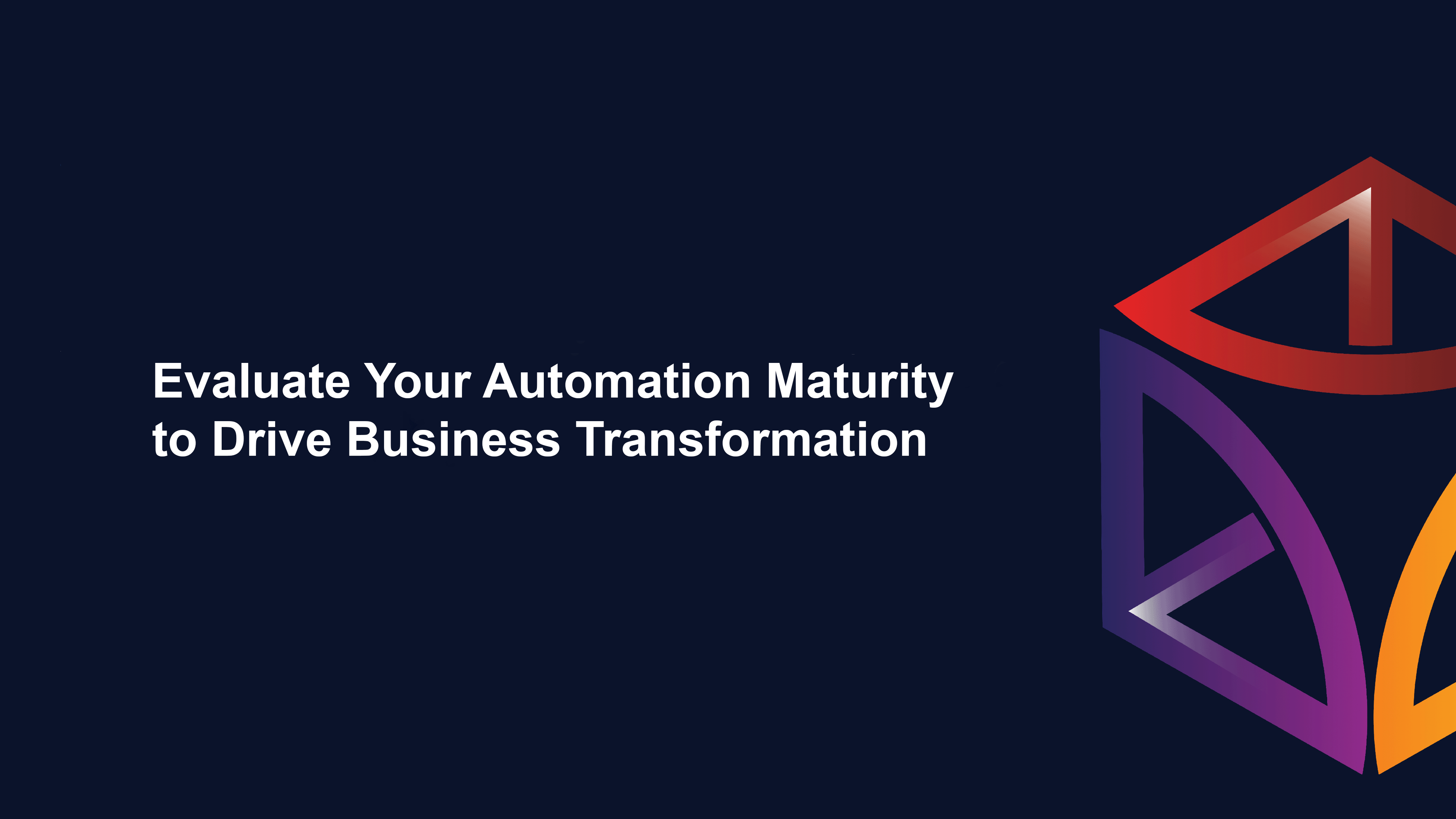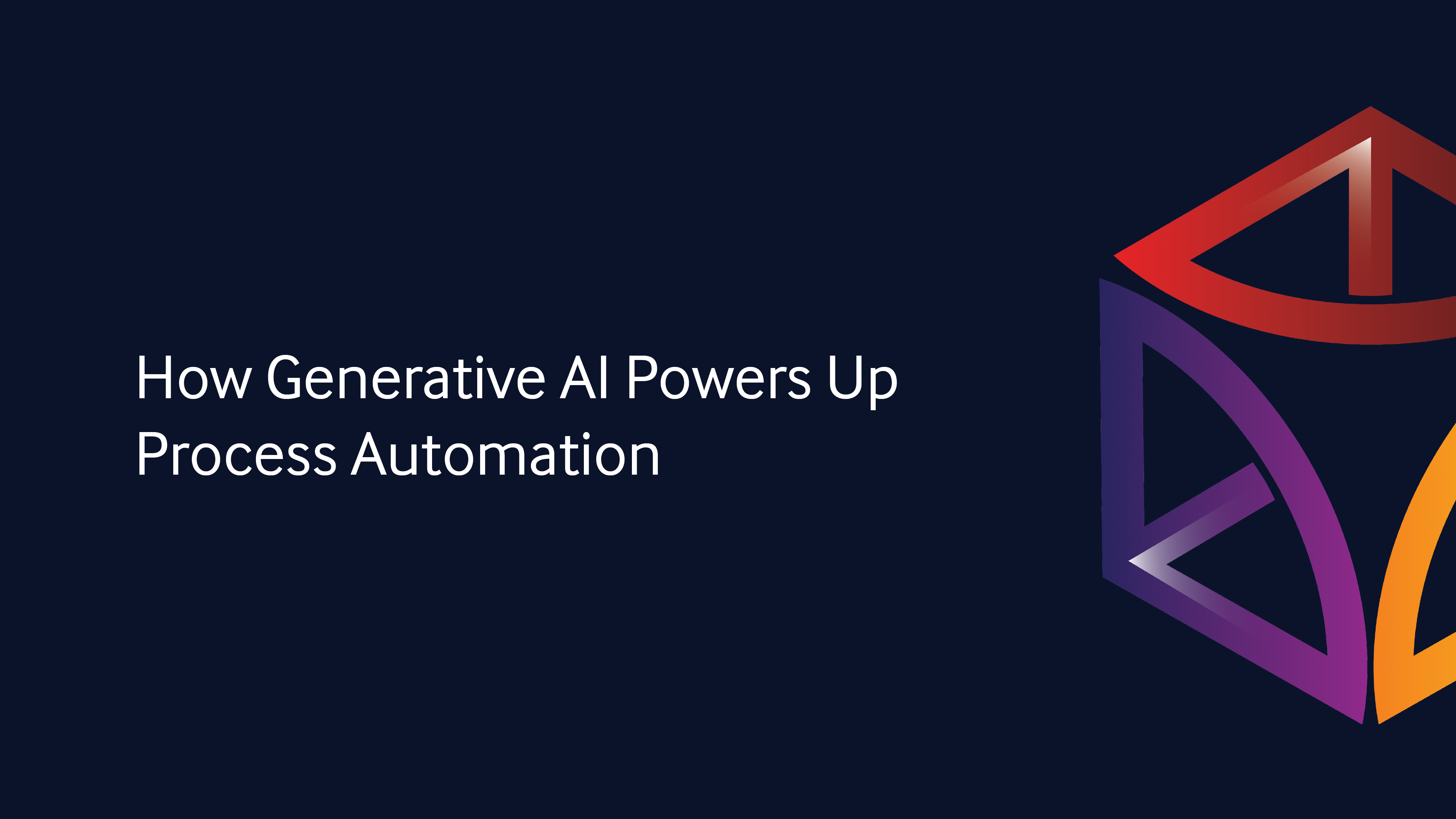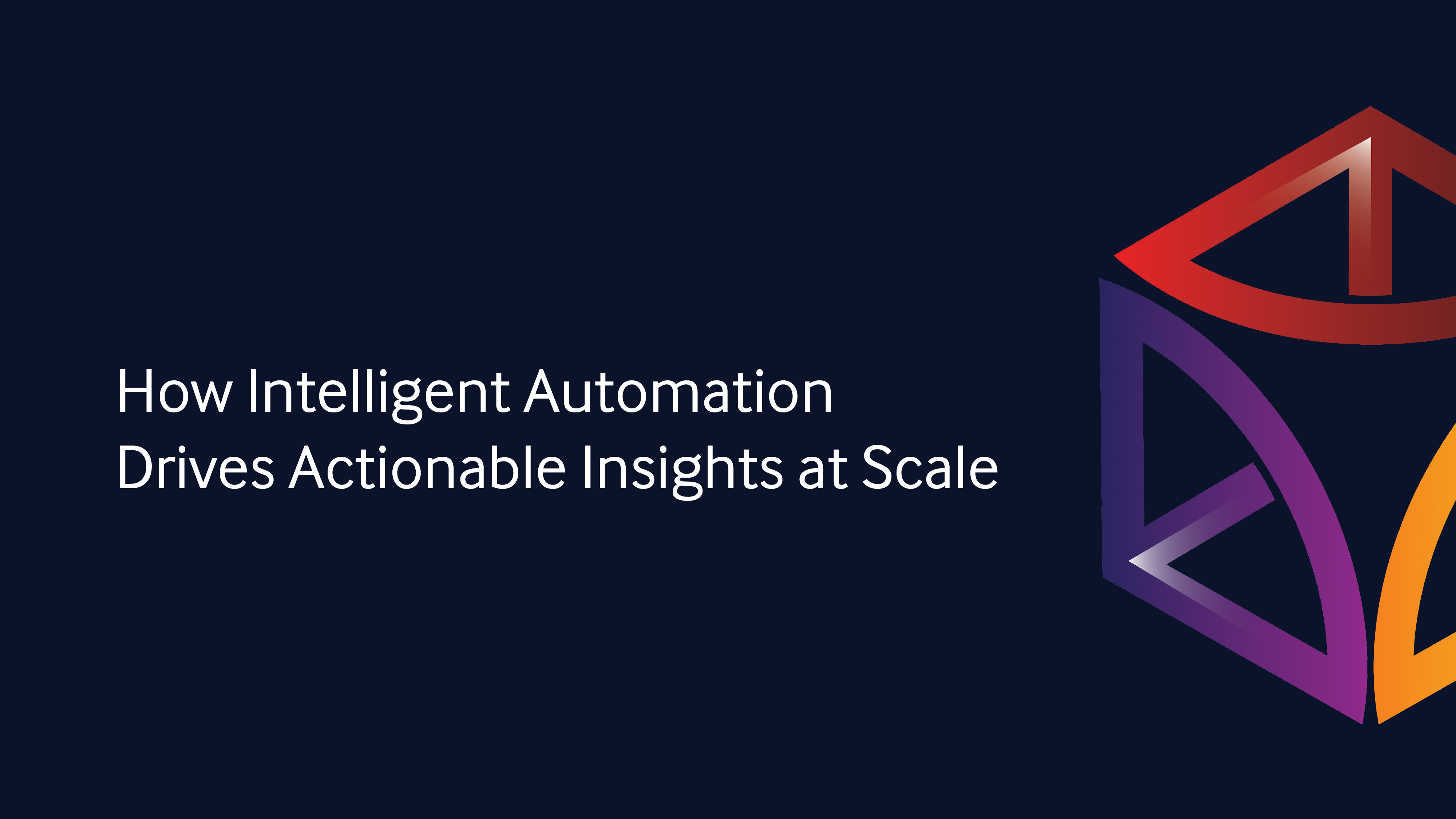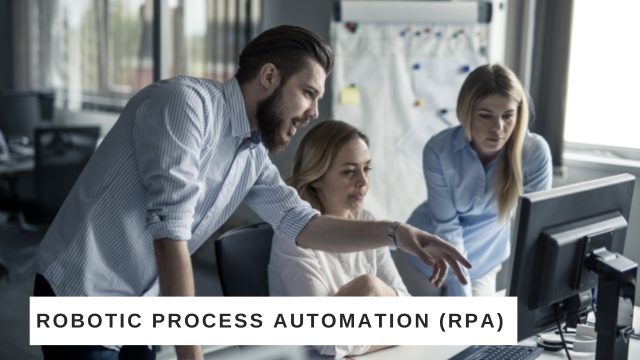

Elsa Petterson
Partner success manager @ Put It Forward
Table of Contents
- How to Drive Actionable Insights at Scale With Intelligent Automation
- What Is Intelligent Automation?
- Why Organizations Struggle to Generate Insights?
- How Does Intelligent Automation Offer a Better Path to Scaling by Insights?
- Why Is Intelligent Automation Gaining Popularity in Generating Insights at Scale?
- Use Cases of Intelligent Automation for Revenue Insight Generation
- Key Takeaways
Summary:
- Intelligent automation combines RPA, ML, NLP, BPM, and AI to improve efficiency, uncover new growth opportunities, enable data-driven decisions quickly, and automate processes.
- Disparate systems, poor data quality, lack of strategic alignment, orchestration tools, and lack of data illiteracy continue to create a chasm in operating with actionable insights.
- Insights surfaced through the platform’s continual analysis of data and processes by using AI and ML.
- Intelligent Automation delivers insights at scale and helps organizations with use cases such as customer prediction, lead generation, conversions, sentiment analysis, operational efficiency, risk management, and many more.
- As organizations become proficient at generating insights at scale, they will see increased revenue growth, significant cost savings, and higher investment returns because of the scalar benefit.
In a recent study conducted by McKinsey, it was found that companies leveraging data-driven B2B sales-growth engines are experiencing remarkable outcomes. These companies report above-market growth, with EBITDA increases ranging from 15% to 25%.

Intelligent Automation process flow.
Insights that can scale have become the new world currency for businesses. Insights have become the lifeblood to help organizations compete at a new level and retain customers and employees. However, turning data into actionable insights at scale has been a vision and a long journey plagued by ups and downs and detours. For starters, over the last decade, organizations have deployed a tremendous amount of technology across every function in business. Fast forward to today, and the C-Suite is asking where the insights from all the tech investments over the last 10 years are. The answer is that we need to integrate these disparate systems and siloed data and begin analyzing the data to deliver actionable insights at scale. It’s on the docket. To generate insights at scale, four pillars must be present: tools, culture, leadership, and vision. Intelligent automation is the tool that can help.
What Is Intelligent Automation?
Before we discuss actionable insights, let’s explain intelligent automation – the technology through which you can automate insight generation. So, what is it?
Intelligent automation involves the integration of cutting-edge technologies like machine learning (ML), artificial intelligence (AI), robotic process automation (RPA), business process management (BPM), and natural language processing (NLP). Commonly referred to as intelligent process automation, its primary objective is to enhance business efficiency and uncover new growth opportunities.
Why Organizations Struggle to Generate Insights?
Now, let’s start by discussing businesses' challenges when generating insights.
Siloed Data Locked in Disparate Systems
One of the most common problems haunting businesses nowadays and preventing them from gathering predictive insights and actionable insights is data silos – multiple systems holding different information about the same customer/process/product. Additionally, these team members often don’t have access to each system.
This results in no single truth within an organization – each team might have different information views, which hinders decision-making and makes insights incomplete. It also leads to incorrect action.
Poor Data Quality
Another element that prevents data from being turned into actionable insights is the quality of the data itself. If quality attributes such as completeness, accuracy, or timeliness are required to drive an insight but are compromised, so is the quality of insight. This can change over time through data remediation or adjustments to the insight model.
Lack of Strategic Alignment
The types of performance metrics your organization collects and how they are used later on must align with your business goals. However, frequently it’s not the case. This hinders the process of actionable insights collection in many companies.
Tools Illiteracy
If your employees don’t know how to use data-collecting tools, then errors are bound to happen. One of the most common obstacles in actionable insight generation is that the teams cannot extract and collect data because they don’t know how. Moreover, this can reinforce the other challenges, such as poor data quality.
Detached Data Workflows
Another challenge is that data-collecting tools are often not integrated into a company's processes. As a result, data isn’t collected when it should be, leading to incomplete data.
Weak Data Literacy and Collaboration
Teams need to be aligned in terms of data collection and utilization; otherwise, you will lack critical information or simply receive low-quality data. Yet, lack of collaboration is still a common problem in numerous organizations.
Relying on Intuition
As mentioned, it’s not the time to rely on the gut when making critical business decisions. Yet, many organizations still do that simply because it used to be the case. This may result in them staying behind their competitors, effectively decreasing their revenue.
How Does Intelligent Automation Offer a Better Path to Scaling by Insights?
An intelligent automation platform drives insights at scale and helps you overcome most of the challenges mentioned above. How does this happen? Take a look below.
Increase Decision Quality
- Intelligent automation facilitates the democratization of data, enabling individuals at various levels of an organization to access and interpret information.
- This inclusivity in data access fosters a more collaborative and informed decision-making environment.
Single Customer View
- Organizations can seamlessly integrate diverse customer data sources through intelligent automation to create a unified and single customer view.
- This comprehensive perspective enhances the understanding of customer interactions, enabling more personalized and targeted strategies.
Improve Execution Efficiency
- Intelligent automation reduces the number of process errors by ensuring the standard of information needed to make decisions is at a higher level
Why Is Intelligent Automation Gaining Popularity in Generating Insights at Scale?
Intelligent automation lets you gather … automated insights and then act on them. In addition, it helps overcome the main obstacles preventing businesses from managing and using data effectively. It’s the ultimate tool for data analytics, which opens new doors you wouldn’t access otherwise.
Intelligent automation redefines work by focusing on the outputs and problems that are solved instead of activities and tasks executed. AI enables you to analyze much more data in seconds than any team of humans would be capable of. Moreover, intelligent automation uses deep learning, which means that such systems learn how to spot patterns and predict market or customer behaviors that a human wouldn’t be able to.
Use Cases of Intelligent Automation for Revenue Insight Generation
Enough of the theory – let’s look at automated actionable insight creation in practice. What can it be used for?
- Customer prediction – With actionable insights achieved with Intelligent Automation, you can predict who your potential customers are, as well as find any churn indicators. Additionally, it may help you improve and personalize your content without the need for A/B tests and be more precise in your customer-oriented activities, providing a higher ROI on your marketing, sales, and customer service. Learn more: Predict Your Next Customer.
- Lead generation – According to Forrester, team alignment achieved through intelligent automation translates to a major (36%) revenue and profitability (28%) growth. Actionable insights, in this case, help in locating the most promising leads (and overall in lead scoring), tailor the messages to coin these leads into sales, and strategize content distribution to ensure that the process is as quick and successful as possible. Learn more: Lead Generation Use Case.
- Sentiment analysis – Intelligent automation enables you to trace customer relationships in real-time and help visualize the data on sentiments to make drawing conclusions easier. Learn more: Sentiment Analysis Solution.
- Conversion – Finally, intelligent automation helps you simulate numerous scenarios and analyze different target audiences separately. As a result, you can understand your audience better and tailor your efforts to maximize conversion rates in each target group. Learn more: Conversion Optimization Solution.
Key Takeaways
- Businesses need help with creating actionable insights because they struggle with siloed data locked in disparate systems, poor data quality, lack of strategic alignment, tools and data illiteracy, and old habits of relying on intuition.
- AI-automated insights created through an intelligent automation platform are effective because such systems can overcome most of the obstacles businesses face.
- Intelligent automation can be employed for actionable insights generation of any kind, including those related to customer prediction, lead generation, conversions, and sentiment analysis.
- Utilizing intelligent automation for generating actionable insights comes with powerful, measurable benefits for businesses, such as increased revenue growth, significant cost savings, and higher return on investment.
Did you find this article interesting? Then you may also be interested in reading Five Ways Intelligent Automation Helps Enterprise Leaders
Subscribe to our blog

